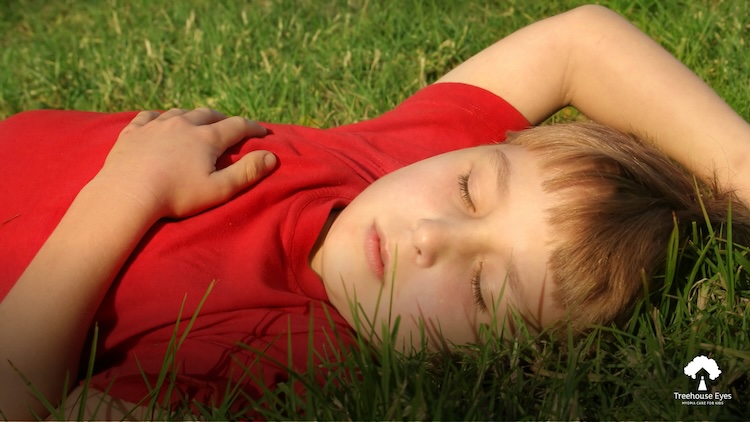Do Children and Teenagers’ Sleep Habits Affect Their Vision?
One question that frequently arises is whether sleep habits impact eye health and vision development. In this blog post, we’ll explore this topic and examine the existing evidence surrounding the relationship between sleep patterns and vision in children and teenagers.

The Link Between Sleep Habits and Vision:
Currently, there’s a lack of direct clinical trial evidence confirming the precise impact of sleep habits on vision. However, intriguing findings from animal models provide suggestive insights into this connection. Disrupting the overall circadian rhythm, which regulates sleep-wake cycles, may potentially influence refractive development in the eye.
Understanding the Role of Circadian Rhythm:
The eye is a complex organ, with various components operating on their own biological rhythms. These include the cornea, choroid, intraocular pressure, and lens. Disrupting these biological rhythms can affect the rate of eye growth, potentially impacting vision development over time.
Indirect Evidence and Myopia Risk:
While direct clinical evidence is lacking, indirect evidence from animal models suggests that staying up late and waking up late—common habits among children and teenagers—may increase the risk of myopia. Myopia, or nearsightedness, is a prevalent vision condition characterized by difficulty seeing distant objects clearly.
Considerations and Caution:
It’s essential to interpret these findings with caution and recognize the limitations of extrapolating animal model data to human populations. While suggestive, these findings do not provide definitive answers regarding the impact of sleep habits on vision in children and teenagers.
Conclusion:
In conclusion, the relationship between sleep habits and vision in children and teenagers remains an area of ongoing research and investigation. While animal model studies suggest a potential link between disrupted circadian rhythms and vision development, direct clinical evidence is needed to confirm these findings in human populations.
Fostering healthy sleep habits for children is essential for overall well-being, including their vision health. Encouraging consistent sleep schedules and adequate rest may contribute to optimal vision development. At Treehouse Eyes, we’re committed to staying informed about the latest research and providing comprehensive care to support your child’s myopia treatment journey.
Let Treehouse Eyes Help Your Child Manage Myopia
Treehouse Eyes’ doctors use modern equipment to develop personalized treatment plans for your child. Our treatment plans include special prescription eye drops and customized daytime and overnight contact lenses. Treehouse Eyes doctors determine which treatment plan works the best for your child at your initial consultation. Schedule a consultation now to find out more.